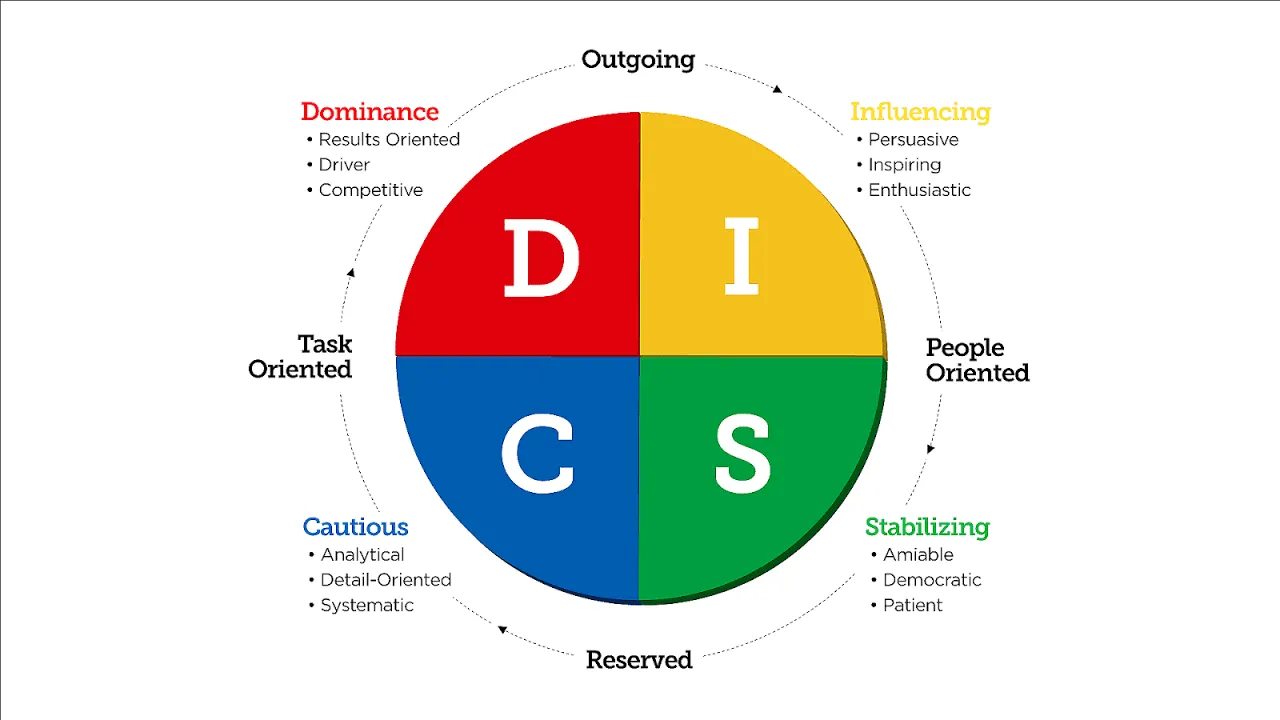Stay in the know —
Scroll to learn more about what we’ve been up to lately.

How to Use AI in Your Job Search
AI is the new search engine. Large Language Models (LLMs) like ChatGPT and Claude are increasingly becoming the go-to source for answers, recommendations, and research. Instead of scrolling through Google results, more people are asking AI directly. And even if you still use Google, you've probably noticed the AI overview sitting right at the top of your search results.
This shift matters for your job search. If you're not using AI strategically, you're leaving time, energy, and opportunities on the table. AI allows you to increase your productivity and avoid burnout. It gives you the ability to be consistent without burning out. Those repetitive tasks that drain your energy, like tailoring resumes, writing cover letters, preparing for interviews, can be streamlined, saving you time and mental bandwidth for what really matters.

Executive Presence 101: How to Command Respect While Staying Authentically You
Executive presence is your ability to inspire confidence in others, demonstrating that you're capable, reliable, and can drive results. It's about how you show up in high-stakes moments, how others perceive your leadership readiness, and whether people trust you to navigate complexity with steadiness and clarity. But here's where it gets interesting. Executive presence breaks down into three core components in descending order of importance:
1. Gravitas (Confidence and Leadership Substance): The most critical element, accounting for the majority of executive presence. This is your ability to remain composed under pressure, make difficult decisions, demonstrate emotional intelligence, and show respect for diverse perspectives.
2. Communication (How You Connect and Influence): Your capacity to articulate ideas clearly, listen actively, read the room, and adapt your message to your audience. In the modern workplace, this means commanding both traditional boardrooms and virtual Zoom meetings with equal effectiveness.
3. Appearance (How You Present Yourself Visually): While important, this is the least critical component (yet it's often the one women receive the most feedback about). Your appearance should reinforce your confidence, not define your competence.
True executive presence flows from the inside out. It's built on genuine confidence, not a carefully curated costume.

The Strategic Resignation: How to Quit Your Job Like a CEO (Even If You're Not One Yet)
Master the art of professional exits that preserve relationships, protect your reputation, and position you for bigger opportunities.
When Sheryl Sandberg stepped down from Meta, she didn't just submit a two-week notice through HR. When Indra Nooyi left PepsiCo, it wasn't a surprise announcement that blindsided her team. These executive departures were strategic, thoughtful, and executed with precision that protected both their legacy and future opportunities.
Yet somehow, the rest of us are expected to figure out resignations with nothing more than a basic template and hope for the best. That stops today.
If you're a professional woman ready for your next chapter, your resignation deserves the same strategic planning you'd apply to any major business decision. Because how you leave matters just as much as where you're going, and it can either accelerate your career trajectory or create challenges that follow you for years.

Why "Follow Your Passion" Is Bad Career Advice
You've heard it everywhere: "Follow your passion, and you'll never work a day in your life!" LinkedIn is flooded with inspirational posts about quitting corporate jobs to pursue dreams. Career change advice often centers on finding your "true calling." But here's the uncomfortable truth that most career coaches won't tell you: following your passion might be the exact reason you're stuck in career limbo, struggling financially, or constantly searching for that elusive "perfect" role.
As professional women who've already built impressive careers, you deserve better than feel-good platitudes. You need strategic career planning that actually works in the real world. Let's shatter the “passion myth” once and for all and explore what authentic career alignment really looks like.

Interview Red Flags: How to Spot a Toxic Work Culture Before You Accept the Offer
You’re crushing your interviews, impressing the hiring manager, and finally received an offer that looks amazing on paper! Competitive salary, impressive title, great benefits… but something feels off. Maybe it was the way the interviewer answered your questions about work-life balance, or how the current team members seemed stressed and guarded when you met them.
Your intuition is trying to tell you something. An impressive job title and great salary are meaningless if you're walking into a toxic workplace that will drain your energy, stunt your growth, and potentially damage your mental health. The most expensive career mistake is accepting a role in a dysfunctional culture that sets you back personally and professionally.
Many professional women discover too late that toxic work cultures are masters of disguise during the interview process. They present their dysfunction as "fast-paced environments," their poor management as "entrepreneurial spirit," and their lack of boundaries as "passionate, all-in culture." Learning to identify toxic workplace signs during the interview process is a career strategy. When you can spot dysfunction before you're trapped in it, you're free to pursue opportunities that actually align with your values and support your long-term success.
Let’s talk about the specific signs that reveal whether you're looking at a career opportunity or a trap.

LinkedIn Profile Mistakes That Are Costing You Job Opportunities
Your LinkedIn profile is either working for you or working against you. While you've busy doing your job and building a career, what has your LinkedIn presence been doing? Is it opening you up to new leadership opportunities and exciting jobs? Or is LinkedIn quietly sabotaging your career advancement by sending all the wrong signals?
Recruiters and hiring managers are making split-second decisions about your potential based on your LinkedIn profile, often before they ever speak to you. In just seven seconds, they're determining whether you're executive material or middle management, whether you're worth a premium salary or standard market rate, and whether you understand your own professional value well enough to articulate it clearly.
I’ve seen some of the most accomplished professional women with the most underwhelming LinkedIn profiles! They assume their work speaks for itself. Meanwhile, less qualified candidates with strategically optimized LinkedIn profiles are landing the interviews, opportunities, and offers that should be yours.
LinkedIn profile optimization isn't about gaming the system or being someone you're not. It's about ensuring your authentic professional value and personal brand translates clearly in the digital space where most career opportunities begin. Your impressive background deserves a LinkedIn presence that opens doors rather than closes them.
Your current LinkedIn strategy (or lack thereof) might be limiting your opportunities. This blog is all about how to transform your LinkedIn profile into a powerful career advancement tool. We’ll explore the specific mistakes that might be costing you visibility, credibility, and access to the senior-level opportunities you've earned the right to pursue.

Salary Negotiation for Women: How to Ask for What You're Worth (And Actually Get It)
Salary negotiation isn't just a one-time conversation. It's about developing the mindset, skills, and strategies that serve you throughout your entire career. Every negotiation builds confidence and competence that makes future conversations easier and more successful. The women who achieve the greatest earning potential are the ones who consistently advocate for their worth and negotiate compensation that reflects their true market value.
Understanding salary negotiation strategies is crucial, but having the confidence and support to implement them effectively often requires professional guidance. Many accomplished women find that working with a salary negotiation coach accelerates their success and helps them avoid common pitfalls that can derail these important conversations. You're building wealth, creating options, and establishing patterns of self-advocacy that influence every aspect of your professional life.

Confidence Before Credentials: Why Your Mindset Matters More Than Your Resume
Confidence is way more than just a “nice to have” soft skill. It’s the invisible factor that determines whether your impressive credentials actually translate into the job opportunities, compensation, and recognition you deserve.
The uncomfortable truth is that two equally qualified candidates can have completely different career trajectories based solely on their confidence levels. The one with more confidence will negotiate a higher salary, pursue stretch opportunities, and position herself as a leader. The one with less confidence will accept lower offers, avoid challenging roles, and let others take credit for her contributions.
Your resume gets you in the room, but your confidence determines what happens next. While you've been busy collecting credentials and checking boxes, you might have overlooked the most crucial career asset of all: an unshakeable belief in your own professional value.
Mindset matters more than your resume. Building career confidence can transform not just how others see you, but how you show up for yourself and own your success. Let's explore professional confidence and why it's the ultimate competitive advantage in today's job market.

DISC Assessments: How Personality Science Can Reveal Your Ideal Career
You have a great resume, an impressive job title, and a steady paycheck, so why are you still getting the Sunday Scaries? Why do you feel like you're stuck in a job that doesn't quite feel like a good fit, even though everything seems fine on the outside?
You're not broken, lazy, or ungrateful. You're experiencing what happens when your career doesn't match your authentic self. While most people chase job titles and salary increases, the most fulfilled professional women have aligned their work with their natural personality strengths.
The DISC Career Management Assessment isn't just another personality test. It's a scientifically-backed framework that reveals why certain work environments energize you while others drain your soul, even when the job description sounds perfect. Understanding your DISC profile is like having a career GPS that guides you toward opportunities where you'll naturally excel instead of trying to fit a square peg into a round hole.
Stop forcing yourself into a career box that don't fit! Instead, start building a professional life that actually works with your natural wiring. Let's discuss how DISC personality science can transform your career from something you endure to something that aligns with your authentic strengths and brings you genuine career fulfillment.

The Hidden Job Market: How to Access the 70% of Roles That Are Never Advertised
If you're spending hours scrolling through job boards, submitting applications into what feels like a digital black hole, and wondering why you never hear back—this isn't a you problem. It's a strategy problem.
70% of jobs are never publicly posted. While everyone else is fighting over the scraps on Indeed and LinkedIn, the best opportunities—the ones with better compensation, more flexibility, and actual growth potential—are being filled through networks and relationships you don't even know exist yet.
But here's what makes this even more frustrating: as a professional woman, you're likely already excellent at building relationships and creating value for others. You just haven't been taught how to leverage these natural strengths for strategic career advancement.
The hidden job market isn't some exclusive club for people with Ivy League connections or country club memberships. It's a strategic approach that puts you in front of decision-makers before they even realize they need someone with your skills. And the best part? Most of your competition has no idea how to access it.
Ready to stop applying blindly and start connecting strategically? Let's break down exactly how to tap into this hidden goldmine of opportunities that could transform your career in months, not years.

How to Get Noticed and Promoted: A Strategic Guide for Professional Women
You've been doing everything right. Crushing your KPIs, volunteering for high-visibility projects, staying late to perfect presentations, and earning praise from colleagues who genuinely value your expertise. Yet somehow, you're still watching less qualified candidates get promoted over you, or worse—you're applying for roles that should be slam dunks and hearing nothing but crickets.
Sound familiar? You're not alone, and more importantly, you're not imagining it.
The uncomfortable truth is that hard work alone isn't enough anymore. Personal branding for professional women has become the difference between being overlooked and being in-demand. It's not about working harder, it's about positioning yourself strategically so decision-makers see you as the obvious choice.

Work-Life Alignment: How to Design a Career That Funds Your Ideal Lifestyle
Forget what you've been told about work-life balance. If you're a professional woman earning six figures but still feeling like you're trading your life for a paycheck, the problem isn't that you need better time management skills or a fancy planner. The real issue is that you've been approaching your career backwards.
Most ambitious women build impressive careers first, then try to squeeze their ideal life around the edges. But what if we flipped the script? What if instead of chasing work-life balance (which is honestly exhausting), we focused on work-life alignment, designing a career that actually funds and supports the lifestyle you truly want?
The truth is you don't have to choose between professional success and personal freedom. You just need a strategic approach that puts your definition of freedom first, then builds a career around it. Because life's too short to spend Monday through Friday waiting for your real life to begin.

From Rejection to Redirection: How Getting Rejected Can Become an Advantage in Your Job Search
That rejection email stings, doesn't it? The one that starts with "Thank you for your interest, but..." and effectively ends with your dreams of landing that perfect role crushed.
I know that feeling intimately. And if you're in the midst of a job search, chances are you do too.
But what if I told you that those rejections—yes, even the ones that feel particularly personal—could become your greatest advantage in finding a role that truly aligns with your skills, values, and desired lifestyle?
This isn't about empty positivity or pretending rejection doesn't hurt. Instead, it's about developing a strategic approach to transform career setbacks into stepping stones toward greater professional freedom and fulfillment.

The Mid-Career Pivot: How to Change Industries Without Starting Over
The average person will change careers 5-7 times during their working life, with many of these transitions happening in mid-career. But here's the good news: your experience isn't a limitation. It's your greatest asset in making a successful industry pivot.






Want to book Kate for a podcast or speaking arrangement?
